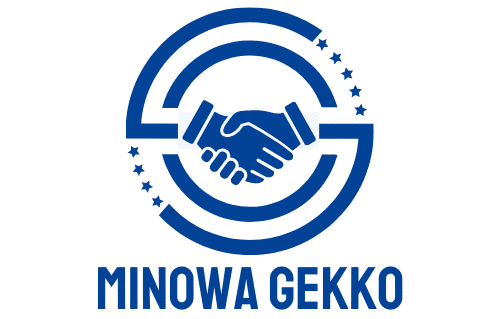How Are AI-Powered Diagnostic Apps Improving Access to Healthcare?

In an era where technology permeates every aspect of our lives, it’s no surprise that it’s making significant strides in healthcare, too. One exciting advancement is the application of artificial intelligence (AI) in diagnostic apps. These technological wonders are revolutionizing the way patients receive medical care, making healthcare more accessible and efficient. Let’s delve into how AI-powered diagnostic apps are transforming patient treatment, health data utilization, and overall healthcare accessibility.
1. Enhancing Patient Diagnosis and Treatment
AI-powered diagnostic apps are revolutionizing the way medical professionals diagnose and treat patients. These apps use complex learning algorithms to analyze patients’ symptoms and suggest potential diagnoses. This ability to rapidly process and interpret data can facilitate a quicker diagnosis, crucial in treating diseases that benefit from early detection.
Cela peut vous intéresser : Unveiling the secrets of the gods mystery box adventure
These apps can also help design personalized treatment plans. They can analyze a patient’s medical history, genetic makeup, and lifestyle factors, providing doctors with a comprehensive picture of the individual’s health. Moreover, AI-powered apps can consider the latest clinical research, helping healthcare providers make informed treatment decisions based on the most recent evidence-based practices.
AI’s ability to harness an extensive database of medical information and transform it into actionable insights represents a profound shift in the healthcare landscape. It empowers physicians to make better, timely decisions and offers patients more accurate, personalized care.
A découvrir également : Discover the excitement: dive into live mystery box adventures!
2. Improving Health Data Management
The management of health data is a crucial aspect of patient care and medical research. AI-powered diagnostic apps are helping to streamline this process, ensuring that patient data is securely stored, easily accessible, and efficiently utilized.
These apps can aggregate patient data from various sources into a single platform, allowing healthcare professionals to access complete patient profiles with ease. With machine learning algorithms, these apps can analyze large volumes of data to detect patterns, trends, and correlations – a task that would be time-consuming and challenging for humans.
Moreover, sensitive patient data stored in these apps is usually encrypted for safety. The use of AI in ensuring the protection and confidentiality of patient information not only instills trust among users but also adheres to medical data management regulations.
3. Democratizing Access to Healthcare
From rural areas with limited health facilities to urban zones with time-pressed individuals, AI-powered diagnostic apps are democratizing healthcare access. These apps can diagnose a range of diseases, making healthcare available to individuals who may not have immediate access to medical professionals.
Using these apps, patients can input their symptoms and receive potential diagnoses without leaving their homes. AI’s ability to provide immediate feedback not only saves time but also helps in early disease detection, leading to timely intervention.
Moreover, these apps can provide a solution to the shortage of healthcare professionals globally. By taking over routine tasks such as initial patient diagnosis, AI allows healthcare professionals to focus their skills and time on more critical cases.
4. Facilitating Continuous Learning and Improvement
In the realm of healthcare, the capacity for continuous learning and improvement is paramount. AI-powered diagnostic apps have this capability built into their systems. With each interaction, they learn and improve, becoming more accurate and reliable in their diagnoses.
The apps’ learning algorithms constantly analyze new data, allowing them to adjust and enhance their diagnostic capabilities. This continuous improvement ensures that the apps stay abreast of the latest developments in medical research and practice, providing patients with up-to-date and accurate information.
Furthermore, AI-powered apps can also help educate patients about their health. They can provide detailed information about diseases, treatments, and preventive measures, empowering patients to take more active roles in managing their health.
5. Reducing the Strain on Healthcare Systems
A significant advantage of AI-powered diagnostic apps is their potential to alleviate the burden on healthcare systems. By automating initial diagnostic procedures, these apps can drastically reduce the workload of healthcare professionals, allowing them to dedicate more time and resources towards complex cases.
Additionally, these apps can help streamline administrative tasks such as scheduling appointments, aiding in the overall efficiency of healthcare facilities. By improving operational efficiency, AI-powered diagnostic apps can help make healthcare more cost-effective, benefitting both providers and patients.
In summary, AI-powered diagnostic apps are revolutionizing healthcare by enhancing patient diagnosis and treatment, improving health data management, democratizing access to healthcare, facilitating continuous learning and improvement, and reducing the strain on healthcare systems. As technology advances and these apps become more refined, we can expect even greater improvements in healthcare accessibility and quality.
6. Impacting Decision Making and Treatment Plans
Artificial intelligence in diagnostic apps has a significant influence on decision-making processes and the creation of treatment plans. It optimizes the decision-making process by providing healthcare professionals with comprehensive, real-time information about patients’ health. This leads to more accurate and timely decisions, which are essential in healthcare scenarios where the timing of treatment can drastically affect patient outcomes.
AI-powered diagnostic apps can analyze and interpret vast amounts of patient data, including medical history, current symptoms, and even genetic predisposition. It can then use this information to suggest personalized treatment plans that are most likely to succeed based on each patient’s unique health profile.
By integrating the latest findings from Google Scholar and PubMed articles, these apps ensure that treatment plans are aligned with the most recent evidence-based practices. Not only does this increase the likelihood of successful treatment, but it also allows healthcare providers to stay updated about new discoveries and best practices without having to manually sift through countless free articles.
Furthermore, AI’s predictive analytics capabilities can forecast the potential outcomes of different treatment options. This can further inform healthcare providers’ decision-making process, enabling them to choose the most effective course of action for each patient.
7. Advancing Drug Discovery and Deep Learning
Artificial intelligence is not only transforming patient care but also the process of drug discovery. AI-powered diagnostic apps use machine learning and deep learning algorithms to analyze vast databases of clinical research and identify potential new drug compounds. This significantly accelerates the drug discovery process, which traditionally takes years or even decades.
Deep learning, a subset of machine learning, particularly shines in tasks such as image recognition. In healthcare, this ability can be used to analyze medical images like CT scans or x-rays for signs of diseases, leading to quicker, more accurate diagnoses.
Moreover, AI can analyze PMC free full-text archive of biomedical and life sciences literature to look for correlations and patterns that could lead to new discoveries in drug development. By harnessing AI’s power, researchers and healthcare organizations can accelerate the process of bringing new treatments to the market, ultimately improving patient care and outcomes.
Conclusion
Artificial intelligence is playing an increasingly pivotal role in the way we approach healthcare. AI-powered diagnostic apps are not just enhancing patient care but are also diversifying it, democratizing access to healthcare services, and improving the efficiency of healthcare organizations.
They are streamlining decision-making processes, aiding in the creation of personalized treatment plans, and revolutionizing drug discovery through machine learning and deep learning. As these AI-powered apps continue to evolve and improve, we can anticipate a future where healthcare is more accessible, efficient, and personalized than ever before.
As we embrace this new era of AI-driven healthcare, it is imperative to continuously monitor and regulate the use of AI in healthcare to ensure it is used ethically and responsibly, always prioritizing patient welfare above all. The future of healthcare is here, and it is smarter, faster, and more efficient, thanks to artificial intelligence.
